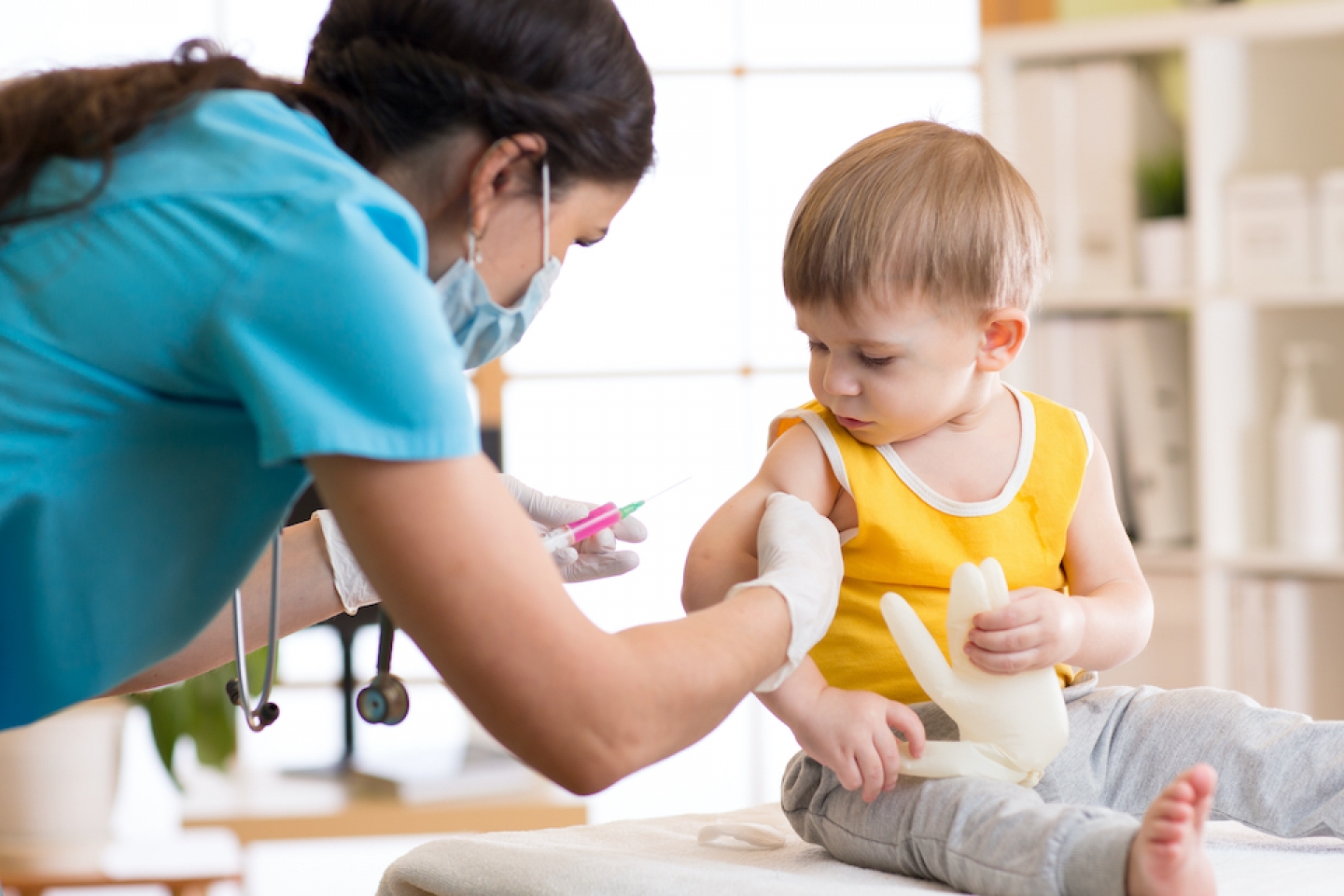
National Immunization Awareness Month (NIAM) underscores the importance of disease prevention through vaccination for people of all ages.
Vaccination is one of the greatest tools for preventing infectious diseases, as well as some cancers, according to board certified general pediatrician David Laufgraben, M.D. Yet, vaccine hesitancy is a growing problem worldwide--one of the top 10 threats to global health, according to the World Health Organization, despite all the evidence of safety and effectiveness of currently recommended vaccines. “The more people choose not to get vaccinated, the easier it becomes for even rare contagious diseases to spread because there are fewer protected people able to stop their transmission,” he explains.
Because of vaccines’ dramatic effectiveness, many parents no longer fear the diseases they were designed to prevent. Although vaccines have completely eliminated some diseases in this country, the few cases that crop up yearly could quickly multiply into tens or hundreds of thousands of cases if enough people go unvaccinated. For example, in 2019, the U.S. saw its largest measles outbreak since 1992, an indicator of how fast diseases can spread when children aren’t vaccinated. In addition, chickenpox and pertussis (whooping cough), both vaccine-preventable, remain common in the U.S. Since 2010, the Centers for Disease Control (CDC) has recorded 10,000 to 50,000 cases of whooping cough each year in this country. “Because vaccination works, the diseases they prevent are less common than they used to be, but we continue to vaccinate to keep kids safe and prevent these dangerous illnesses from returning-they are still out there,” Dr. Laufgraben cautions.
By vaccinating your children, you are protecting them against a host of serious diseases. The CDC recommends all children in the US get vaccinated against 16 infectious diseases: diphtheria, tetanus, pertussis, polio, pneumococcal disease, rotavirus, Haemophilus influenzae type b (Hib), hepatitis A & B, measles, mumps, rubella, varicella (chickenpox), influenza, human papillomavirus (HPV), and meningococcal disease. The HPV vaccine, given to preteens and teens, protects against the human papillomavirus and six types of cancer, including cervical cancer and oral cancer, while the hepatitis B vaccine can prevent liver cancer. The yearly flu vaccine, which doctors recommend for children ages six months and older, is also very important. “While we are still experiencing a surge of COVID cases around the country, the last thing we want is for people to get very sick from the flu,” Dr. Laufgraben says.
The CDC also recommends that everyone age 12 and older receive the COVID-19 vaccine. All COVID-19 vaccines are safe and effective, and available to everyone for free, regardless of immigration or health insurance status. Pfizer COVID-19 vaccine appointments are available to our patients and you can sign up for Connect to schedule your vaccination. You can also view the CDC’s parent-friendly immunization schedule to see which vaccines your children need, whether they are babies or teenagers.
Of course, vaccines aren’t just for kids. Every year, thousands of adults in the U.S. become seriously ill with flu, pneumonia, or shingles. Many even die from diseases that vaccines can help prevent. Because protection from some childhood vaccines can wear off and put you at risk for some diseases, it’s a good idea to find out what vaccines you may need based on your particular risk factors.
Keep in mind that if you get vaccinated during pregnancy, you will pass on antibodies that give your baby short-term protection from illnesses like flu, whooping cough, and even COVID-19, until it is time for her own vaccines.
Pfizer COVID-19 vaccine appointments are available to our patients. Sign up for Connect today to schedule your vaccination. Review the latest on COVID-19 vaccines.